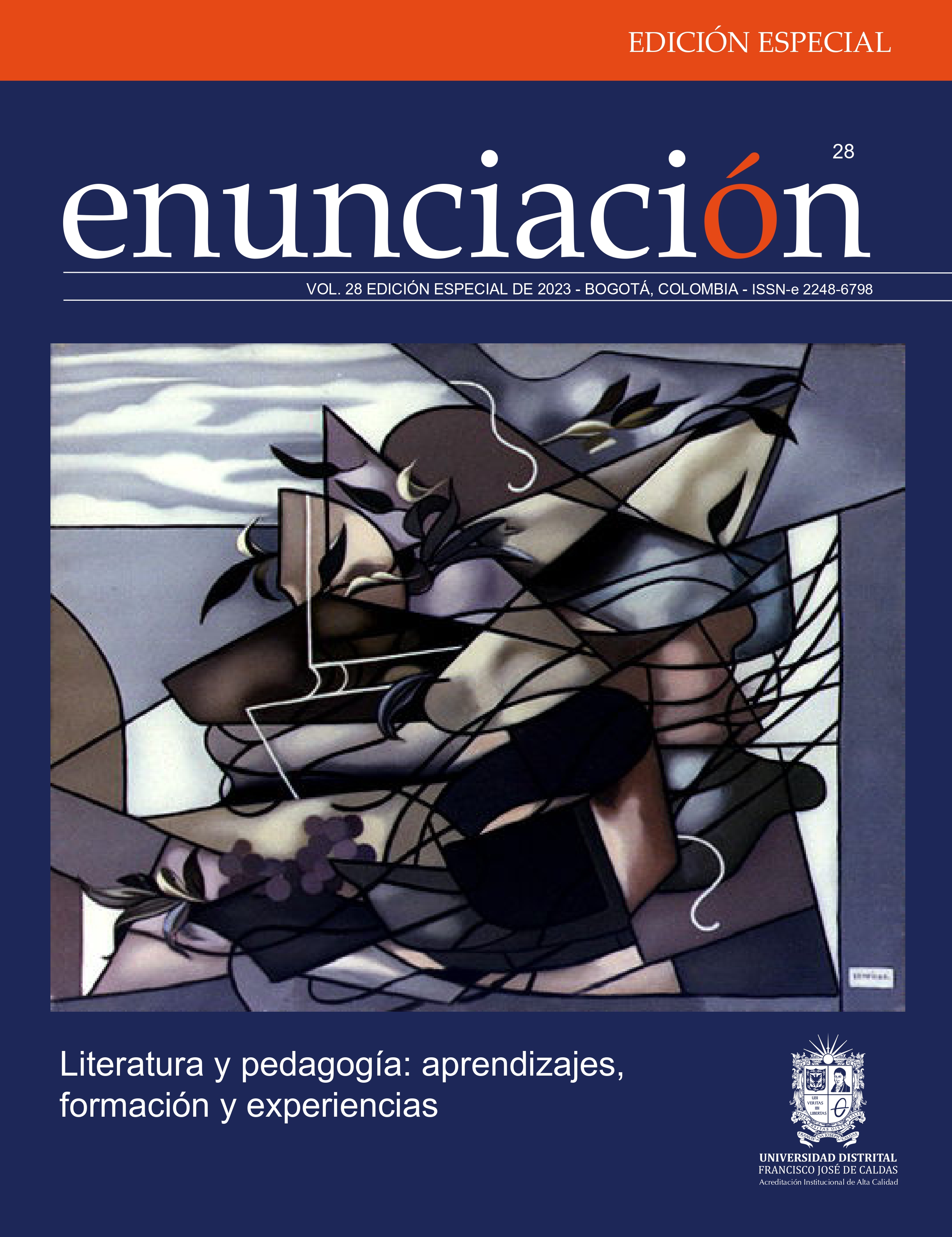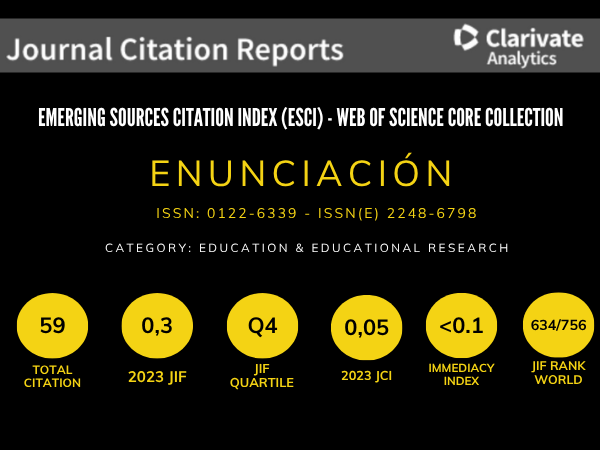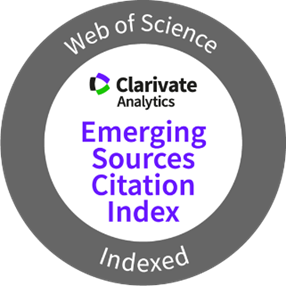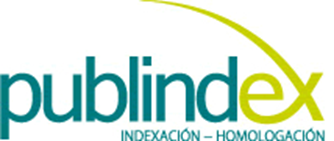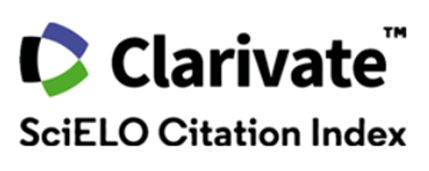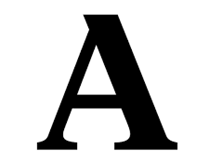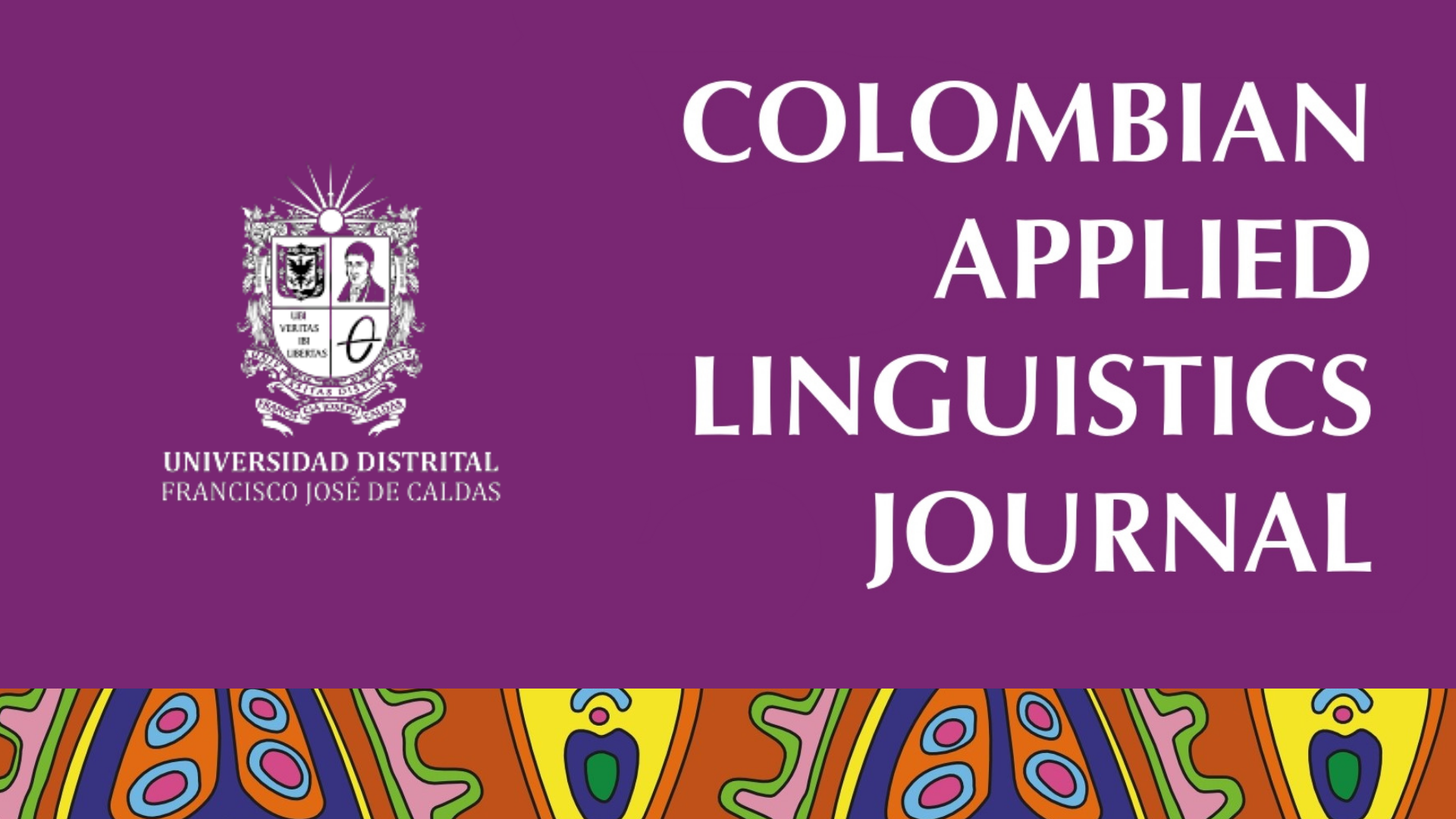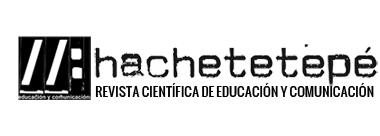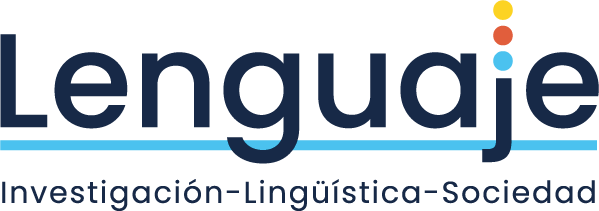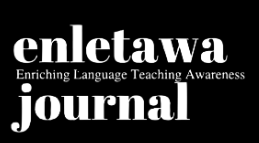DOI:
https://doi.org/10.14483/22486798.20468Publicado:
07-09-2023Número:
Vol. 28 (2023): Literatura y pedagogía: aprendizajes, formación y experiencias (Número Especial)Sección:
La literatura, la educación y la pedagogía: enfoques y tendenciasLeer con el cuerpo: una lectura corporeizada en Educación Infantil
Reading with the Body. An Embodied Reading in the Preschool Classroom
Palabras clave:
educational research, literacy, reading research (en).Palabras clave:
alfabetización, investigación pedagógica, investigación sobre la lectura (es).Descargas
Resumen (es)
Este artículo presenta una experiencia en un aula de Educación Infantil de un centro en desarrollo social de la ciudad de Sevilla (España), en ejecución de un proyecto de investigación para la mejora de la alfabetización multimodal (PID2019-104557GB-I00). Tomando como referencia las corrientes poshumanas y neomaterialistas, pensamos desde la teoría el evento ocurrido a partir de la lectura del álbum ilustrado El mejor libro para dibujar una vaca y que nos sirve para presentar el acto lector como un proceso de cocreación de nuevos significados y realidades a partir del enredamiento de los cuerpos desde la intensidad, conformando un assemblage. La no intervención adulta en este proceso de lectura favoreció además el surgimiento de artefactos que nos conducen a pensar en la consideración de los niños como un cuerpomente que coconstruye el significado en conjunto con todos los elementos humanos y más-que-humanos que forman parte de la acción y que coparticipan de ella a partir de la intraacción. Todo esto nos dirige hacia la necesidad de entender la alfabetización y la lectura desde una perspectiva mucho más participativa, en la que todos los elementos implicados (humanos y más-que humanos) cumplen un papel fundamental en la construcción de una realidad mucho más justa, con la consideración de todos los cuerpos y la facilitación de materiales que permitan la libre expresión y el desarrollo de la creatividad.
Resumen (en)
This article presents an experience carried out in a preschool classroom at a school located in a social development area in Sevilla (Spain). The research is carried out within the frame of a research project to improve multimodal literacies (PID2019-104557GB-I00). Taking the posthuman and neomaterialist scopes as a reference, we think with the theory the event occurred from the reading of the book The best book to draw a cow. This event serves us to present the reading act as a process for the co-creation of new meanings and realities, becoming an assemblage, as a result of the entanglement of the bodies and the intensity. The lack of adult intervention during the process also contributed to the creation of artifacts. This makes us think of the child as a bodymind who co-builds the meaning together with all the human and more-that-human elements that take part within the action and that co-participate in it from the intra-action. This leads us to the necessity of understanding the literacies process and the reading act from a pretty much participative perspective. Every implied element (human and more than human) plays a main role in the construction of a more egalitarian reality, taking everybody into consideration and facilitating materials that allow free expression and the development of creativity.
Referencias
Barad, K. (2003). Meeting the universe halfway: Quantum physics and the entanglement of matter and meaning. Duke University Press.
Barad, K. (2007). Posthumanist performativity: Toward an understanding of how matter comes to matter. Signs: Journal of Women in Culture and Society, 28, 801-831. DOI: https://doi.org/10.1086/345321
Bennett, J. (2010). Vibrant matter. A political ecology of things. Duke University Press. DOI: https://doi.org/10.1215/9780822391623
Braidotti, R. (2015). Lo posthumano. Gedisa.
Burnett, C. y Merchant, G. (2018). Literacy-as-event: Accounting for relationality in literacy research.
Discourse: Studies in the Cultural Politics of Education, 41(1), 45-56. https://doi.org/10.1080/01596306.2018.1460318. DOI: https://doi.org/10.1080/01596306.2018.1460318
Caetano-Silva, G. y Clemente-Olías, S. (2023). Glosario. En A. Pacheco-Costa y F. Guzmán-Simón (eds.), Perspectivas de lo más-que-humano en la infancia (pp. 139-144). Editorial Síntesis.
De la Calle, A. M., Guichot-Muñoz, E., Leal-Bonmati, M. R. y Balbás-Ortega, M. J. (2023). Lo más-que-humano en las prácticas alfabetizadoras de la infancia. En A. Pacheco-Costa y F. Guzmán-Simón (eds.), Perspectivas de lo más-que-humano en la infancia (pp. 119-131). Síntesis.
Deleuze, G. y Guattari, F. (1987). A thousand plateaus: Capitalism and schizophrenia. The University of Minnesota Press.
Fullagar, S. y Zhao, W. (2022). Mind/body. En K. Murris (ed.), A glossary for doing postqualitative, new materialist and critical posthumanist research across disciplines (pp. 13-14). Routledge. DOI: https://doi.org/10.4324/9781003041153-7
García-González, M., Véliz, S. y Matus, C. (2020). Think difference differently? Knowing/becoming/doing with picturebooks, Pedagogy, Culture y Society, 28(4), 543-562. https://doi.org/10.1080/14681366.2019.1667858. DOI: https://doi.org/10.1080/14681366.2019.1667858
Guzmán-Simón, F. (2023). La materialización de la alfabetización en la infancia: cuerpos, objetos y espacios como prácticos discursivo-materiales. En A. Pacheco-Costa y F. Guzmán-Simón (eds.), Perspectivas de lo más-que-humano en la infancia (pp. 45-64). Síntesis.
Hackett, A. (2021). More-than-human literacies in early childhood. Bloomsbury. DOI: https://doi.org/10.5040/9781350144750
Hackett, A. y Somerville, M. (2017). Posthuman literacies: Young children moving in time, place and more-than-human worlds. Journal of Early Childhood Literacy, 17(3), 374-391. https://doi.org/10.1177/1468798417704031. DOI: https://doi.org/10.1177/1468798417704031
Hacket, A., Holmes, R. y McRae, C. (2020). Introduction to Part I. En A. Hacket, R. Holmes y C. McRae (eds.), Working with young children in museums (pp. 15-26). Routledge. https://doi.org/10.1177/14687984211068117. DOI: https://doi.org/10.4324/9780429434457-2
Hackett, A., MacLure, M. y Pahl, K. (2020). Literacy and language as material practices: Re-thinking social inequality in young children’s literacies. Journal of Early Childhood Literacy, 20(1), 3-12. https://doi.org/10.1177/1468798420904909. DOI: https://doi.org/10.1177/1468798420904909
Hackett, A., MacLure, M. y McMahon, S. (2021). Reconceptualising early language development: Matter, sensation and the more-than-human. Discourse: Studies in the Cultural Politics of Education, 42(6), 913-929. https://doi.org/10.1080/01596306.2020.1767350. DOI: https://doi.org/10.1080/01596306.2020.1767350
Jackson, A. Y. y Mazzei, L. A. (2012). Thinking with theory in qualitative research: Viewing data across multiple perspectives. Routledge.
Kuby, C. R. y Gutshall Rucker, T. (2016). Go be a writer! Expanding the curricular boundaries of literacy learning with children. Teachers College Press. https://doi.org/10.1177/1468798417712644. DOI: https://doi.org/10.1177/1468798417712644
Kuby, C. R. y Rowsell, J. (2017). Early literacy and the posthuman: Pedagogies and methodologies. Journal of Early Childhood Literacy, 17(3), 285-296. https://doi.org/10.1177/1468798417715720. DOI: https://doi.org/10.1177/1468798417715720
Kuby, C. R., Spector, K. y Thiel, J. J. (2018). Cuts too small. An introduction. En C. Kuby, K. Spector y J. Johnson Thiel (eds.), Posthumanism and literacy education: Knowing/becoming/doing literacies (pp. 1-17). Routledge. https://doi.org/10.4324/9781315106083. DOI: https://doi.org/10.4324/9781315106083-1
Lemieux, A. y Rowsell, J. (2020). On the relational autonomy of materials: Entanglements in maker literacies research. Literacy, 54(3), 144-152. https://doi.org/10.1111/lit.12226. DOI: https://doi.org/10.1111/lit.12226
Lenz Taguchi, H. (2010). Going beyond the theory/practice divide in early childhood education. Routledge. DOI: https://doi.org/10.4324/9780203872956
Lenz Taguchi, H. (2013). Images of thinking in feminist materialisms: Ontological divergences and the production of researcher subjectivities. International Journal of Qualitative Studies in Education, 26(6), 706-716. https://doi.org/10.1080/09518398.2013.788759. DOI: https://doi.org/10.1080/09518398.2013.788759
Lin, Z. y Li, G. (2021). A posthuman perspective on early literacy: A literature review. Journal of Childhood, Education y Society, 2(1), 69-86. https://doi.org/10.37291/2717638X.20212169. DOI: https://doi.org/10.37291/2717638X.20212169
MacLure, M. (2013). Researching without representation? Language and materiality in post-qualitative methodology. International Journal of Qualitative Studies in Education, 26(6), 658-667. https://doi.org/10.1080/09518398.2013.788755. DOI: https://doi.org/10.1080/09518398.2013.788755
Massumi, B. (2002). Parables for the virtual: Movement, affect, sensation. Duke University Press. DOI: https://doi.org/10.1215/9780822383574
Mazzei, L. A. y Jackson, A. Y. (2018) Posthuman literacies in a Minor Language: Expressions-to-come. En C. Kuby, K. Spector y J. Johnson Thiel (eds.), Posthumanism and literacy education: Knowing/becoming/doing literacies (pp. 170-174). Routledge. https://doi.org/10.4324/9781315106083. DOI: https://doi.org/10.4324/9781315106083-17
Merrell, F. (2003). Sensing corporeally: Toward a posthuman understanding. University of Toronto Press. https://doi.org/10.3138/9781442679771. DOI: https://doi.org/10.3138/9781442679771
Murris, K. (2016). The posthuman child. Educational transformation through philosophy with picturebooks. Routledge. DOI: https://doi.org/10.4324/9781315718002
Murris, K. (2018). Choosing a picturebook as provocation in teacher education. En C. Kuby, K. Spector y J. Johnson Thiel (eds.), Posthumanism and literacy education: Knowing/becoming/doing literacies (pp. 156-169). Routledge. https://doi.org/10.4324/9781315106083. DOI: https://doi.org/10.4324/9781315106083-16
Murris, K. y Haynes, J. (2018). Literacies, literature and learning: Reading classrooms differently. Routledge. DOI: https://doi.org/10.4324/9780203732090
Murris, K. y Kuby, C. R. (2022). Adult/child. En K. Murris (ed.), A glossary for doing postqualitative, new materialist and critical posthumanist research across disciplines (pp. 4-5). Routledge. DOI: https://doi.org/10.4324/9781003041153-3
Murris, K. y Zhao, W. (2022). Subject/object. En K. Murris (ed.), A glossary for doing postqualitative, new materialist and critical posthumanist research across disciplines (pp. 18-19). Routledge. DOI: https://doi.org/10.4324/9781003041153-10
Pahl, K. y Rowsell, J. (2014). Artifactual literacies as an approach to early childhood literacy. En J. Marsh y J. Larson (eds.), The Sage Handbook of Early Childhood Literacy (pp. 235-247). Sage. DOI: https://doi.org/10.4135/9781446247518.n15
Project: Decolonizing Early Childhood Discourses. (5 de septiembre de 2018). Posthuman Child Manifesto [Archivo de video]. YouTube. https://www.youtube.com/watch?v=ikN-LGhBawQ&ab_channel=Project%3ADecolonizingEarlyChildhoodDiscourses.
Rice, H. y Badel, R. (2015). El mejor libro para aprender a dibujar una vaca. Barbara Fiore Editora.
Thiel, J. J. (2015). “Bumblebee’s in Trouble!”. Embodied Literacies during Imaginative Superhero Play. Language Arts, 93(1), 38-49. http://www.jstor.org/stable/24577556.
Thiel, J. J. (2018). The first monster mutation. Sliding into summer. En C. Kuby, K. Spector y J. Johnson Thiel (eds.), Posthumanism and literacy education: Knowing/becoming/doing literacies (pp. 114-125). Routledge. https://doi.org/10.4324/9781315106083. DOI: https://doi.org/10.4324/9781315106083-12
Thiel, J. J. y Jones, S. (2017). The literacies of things: Reconfiguring the material-discursive production of race and class in an informal learning centre. Journal of Early Childhood Literacy, 17(3), 315-335. https://doi.org/10.1177/1468798417712343. DOI: https://doi.org/10.1177/1468798417712343
Véliz, S. y García-González, M. (2022). Becoming abject: Testing the limits and borders of reading mediation. Discourse: Studies in the Cultural Politics of Education, 43(1), 15-29 https://doi.org/10.1080/01596306.2020.1786355. DOI: https://doi.org/10.1080/01596306.2020.1786355
Cómo citar
APA
ACM
ACS
ABNT
Chicago
Harvard
IEEE
MLA
Turabian
Vancouver
Descargar cita
Licencia
Derechos de autor 2023 Enunciación

Esta obra está bajo una licencia internacional Creative Commons Atribución-NoComercial-CompartirIgual 4.0.
La revista Enunciación es una publicación de acceso abierto, sin cargos económicos para autores ni lectores. A partir del 1 de enero de 2021 los contenidos de la revista se publican bajo los términos de la Licencia Creative Commons Atribución – No comercial – Compartir igual (CC-BY-NC-SA 4.0 CO), bajo la cual otros podrán distribuir, remezclar, retocar, y crear a partir de la obra de modo no comercial, siempre y cuando den crédito y licencien sus nuevas creaciones bajo las mismas condiciones.
El titular de los derechos de autor es la revista Enunciación, conservando todos los derechos sin restricciones, respetando los términos de la licencia en cuanto a la consulta, descarga y distribución del material.
Cuando la obra o alguno de sus elementos se hallen en el dominio público según la ley vigente aplicable, esta situación no quedará afectada por la licencia.
Asimismo, incentivamos a los autores a depositar sus contribuciones en otros repositorios institucionales y temáticos, con la certeza de que la cultura y el conocimiento es un bien de todos y para todos.

